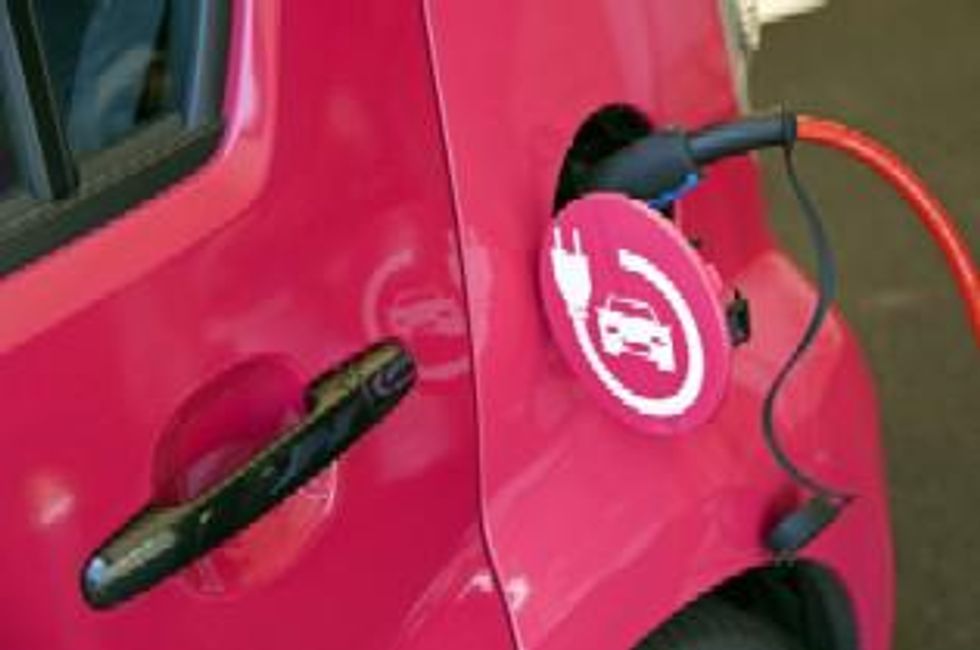Lithium Battery Technology Showcased at Detroit Auto Show
In addition to concept cars and future possibilities, the North American International Auto Show has already resulted in a strategic allegiance with Korea-based SK Innovation and Continental Corporation signing a pioneering partnership with which both companies will develop, manufacture and distribute lithium battery systems for automotive applications.
By Dave Brown —Exclusive to Lithium Investing News
The North American International Auto Show began on Monday in Detroit, and the latest innovations in electric vehicles and concepts are enjoying an audience which is expected to top 700,000. In addition to concept cars and future possibilities, the show has already resulted in a strategic allegiance with Korea-based SK Innovation and Continental Corporation signing a pioneering partnership with which both companies will develop, manufacture and distribute lithium battery systems for automotive applications.
The initial operations will consist of executives from both companies and will be based both in Germany and Korea. SK Innovation will have 51 percent ownership and the remaining 49 percent will be Continental Corporation’s interest. SK Innovation will supply the lithium battery cells while Continental will provide battery management electronics and overall automotive systems competence. SK Innovation initially established its lithium battery business in 1996 and currently supplies global automobile manufacturers including Hyundai Motor (OTC PINK:HYMLF) and Daimler AG (OTC PINK:DDAIF).
Research indicates United States consumer demand for electric vehicles is price elastic
Pike Research conducted a web-based survey of consumers last fall in order to identify market preferences, demand, and price sensitivity for electric vehicles and lithium battery charging infrastructure. The report found that survey respondents indicated strong fundamental interest in electric vehicles, with 40 percent of participants stating that they would be “extremely” or “very” interested in an electric vehicle, although price sensitivity remains a significant issue. Survey participants demonstrated resistance to paying the prices currently planned by automakers. The report employed price sensitivity analysis to quantify consumer price preferences, which suggest that for a traditional internal combustion engine (ICE) vehicle that would ordinarily cost $20,000, the optimal price point for consumers of a comparable electric vehicle would be $23,750. While the report demonstrates consumers will price lithium battery technology at a premium, the amount is significantly less than automakers’ intended prices.
Levels of interest in electric vehicles were not considerably different between demographic segments, leading the researchers to conclude that the electric vehicles could have solid mass-market appeal. However, the study notes consumers below thirty years of age may be more likely to demonstrate interest in electric vehicles, as are people with higher levels of education.
The future is in sight
One electric concept vehicle which is being debuted at the Detroit Auto Show is already coming in with some interesting performance features at a relatively appealing price point. The electric MObility (eMO) from Indian Auto Manufacturer Tata Technologies is featured in the Michelin Challenge Design. The four passenger concept model is equipped with an 18.4 kWh lithium battery pack, and features an estimated range of 161 km with a top speed of 105 kilometers per hour. Although there are no plans for production of this concept car Tata Technologies Vehicle Programs & Development (VPD) Group completed an assembly plant and engineering study with a targeted manufacturers’ suggested retail price of $20,000 before any subsidies.
The eMO architecture emphasizes functional urban transportation by minimizing its exterior footprint and maximizing interior space. It would be targeted primarily for urban usage. The concept has some flexibility with articulated rear seats to effectively create a personal cargo carrier, without the increased mass of a dedicated trunk. The VPD Group consists of more than 300 engineers operating from four automotive global engineering centers including India, Detroit, the United Kingdom, and Germany. The concept was completed in just over one year, and has resulted in 15 patents.
Securities Disclosure: I, Dave Brown, hold no direct investment interest in any company mentioned in this article.





